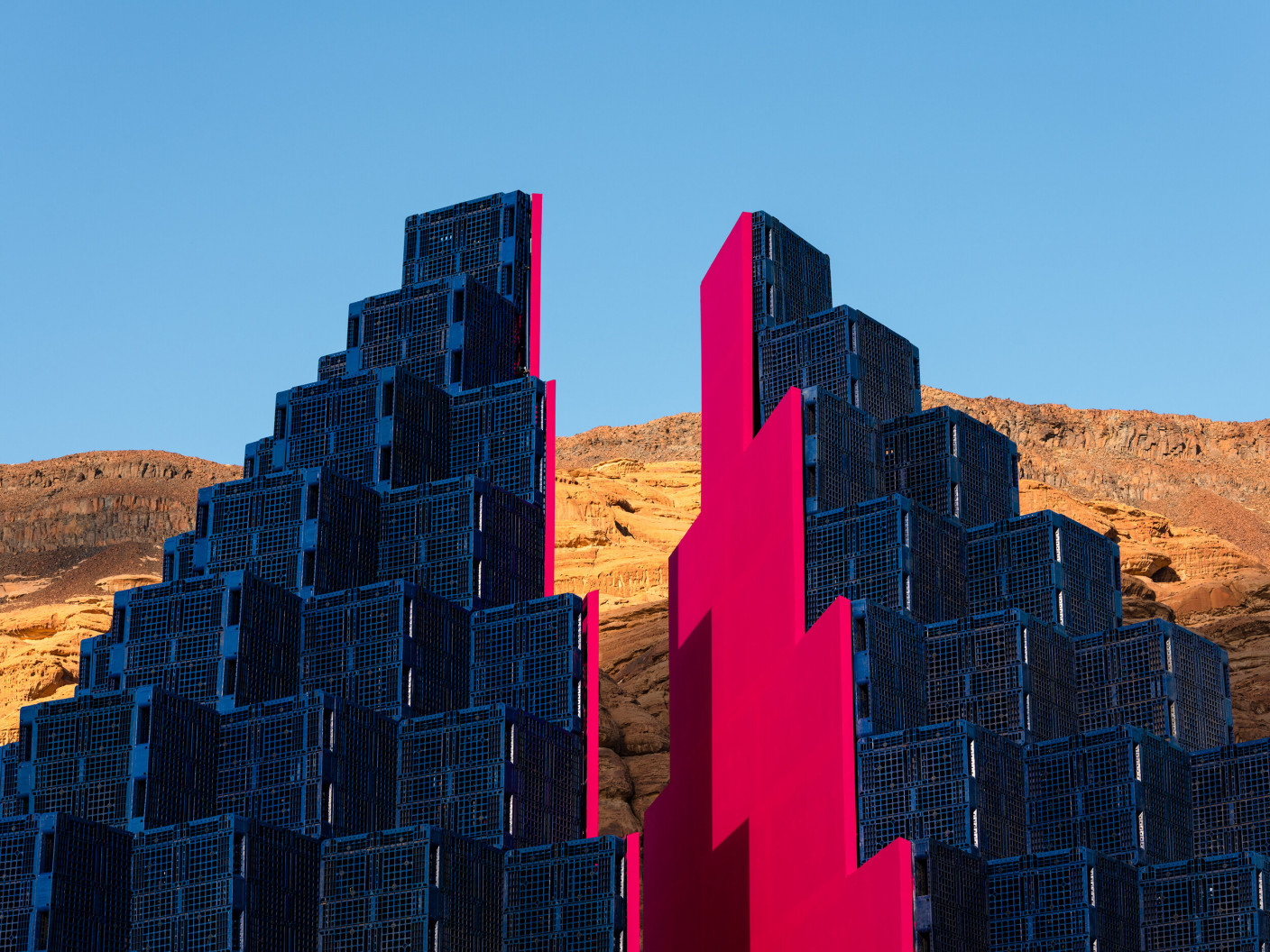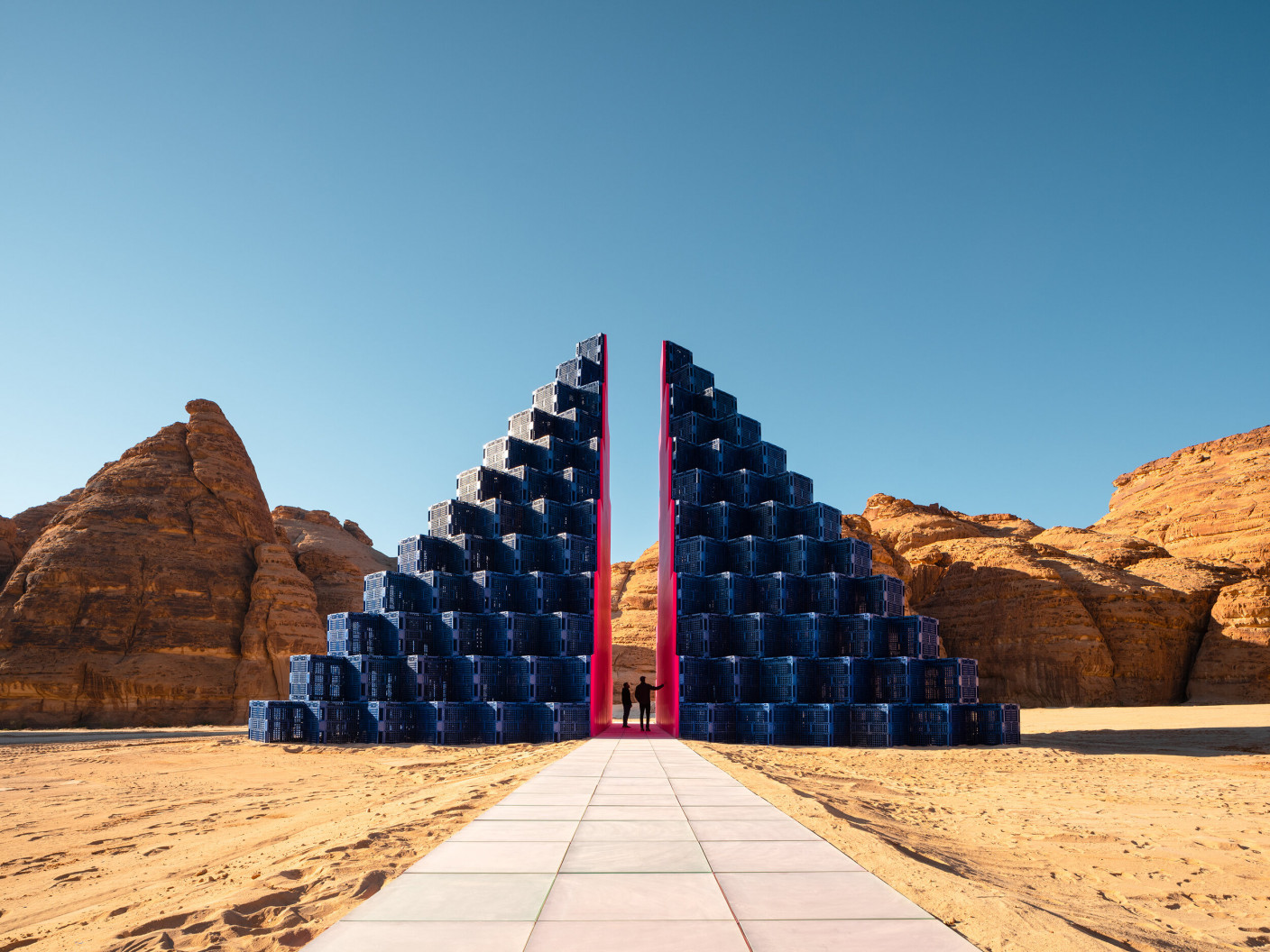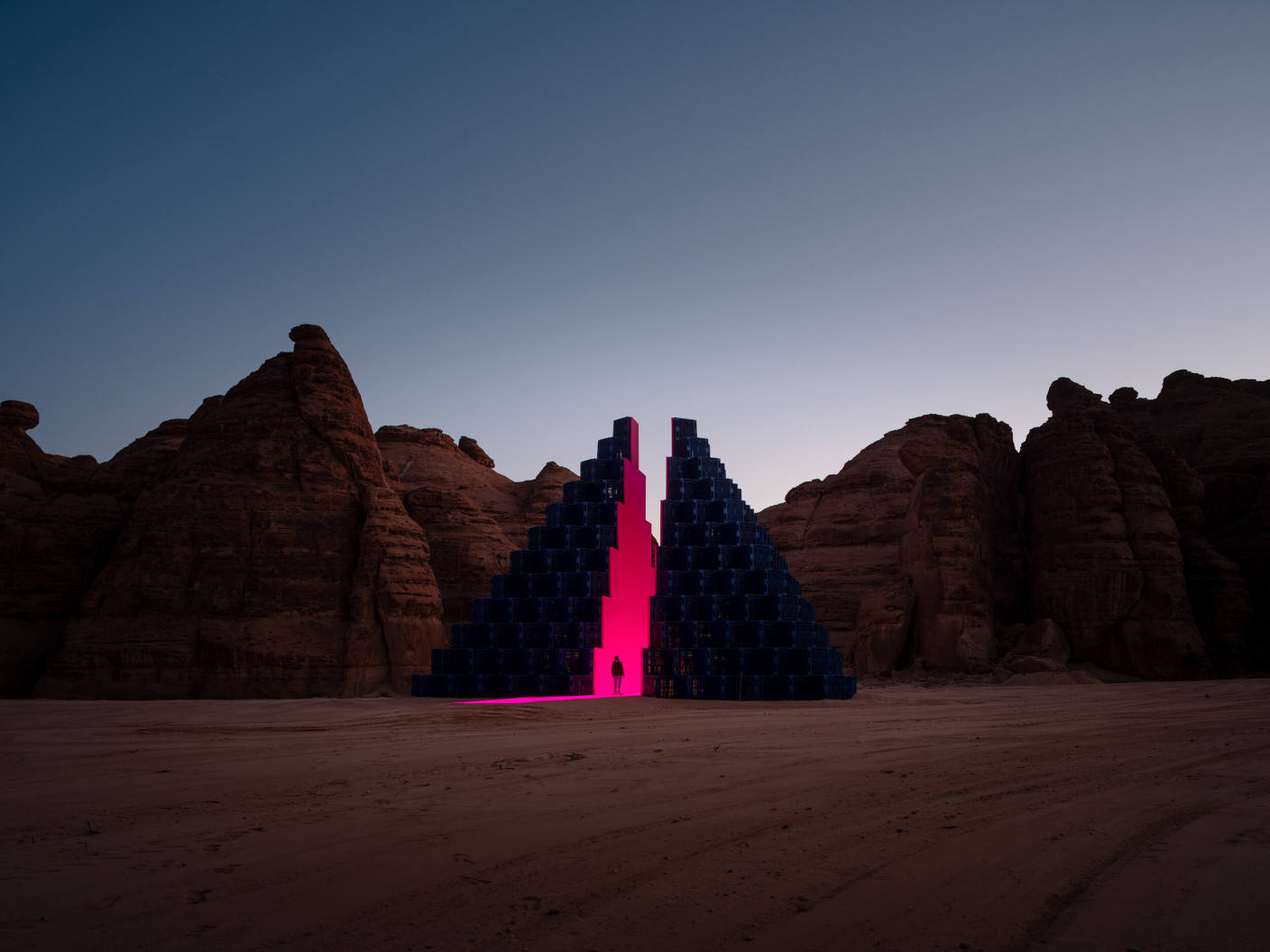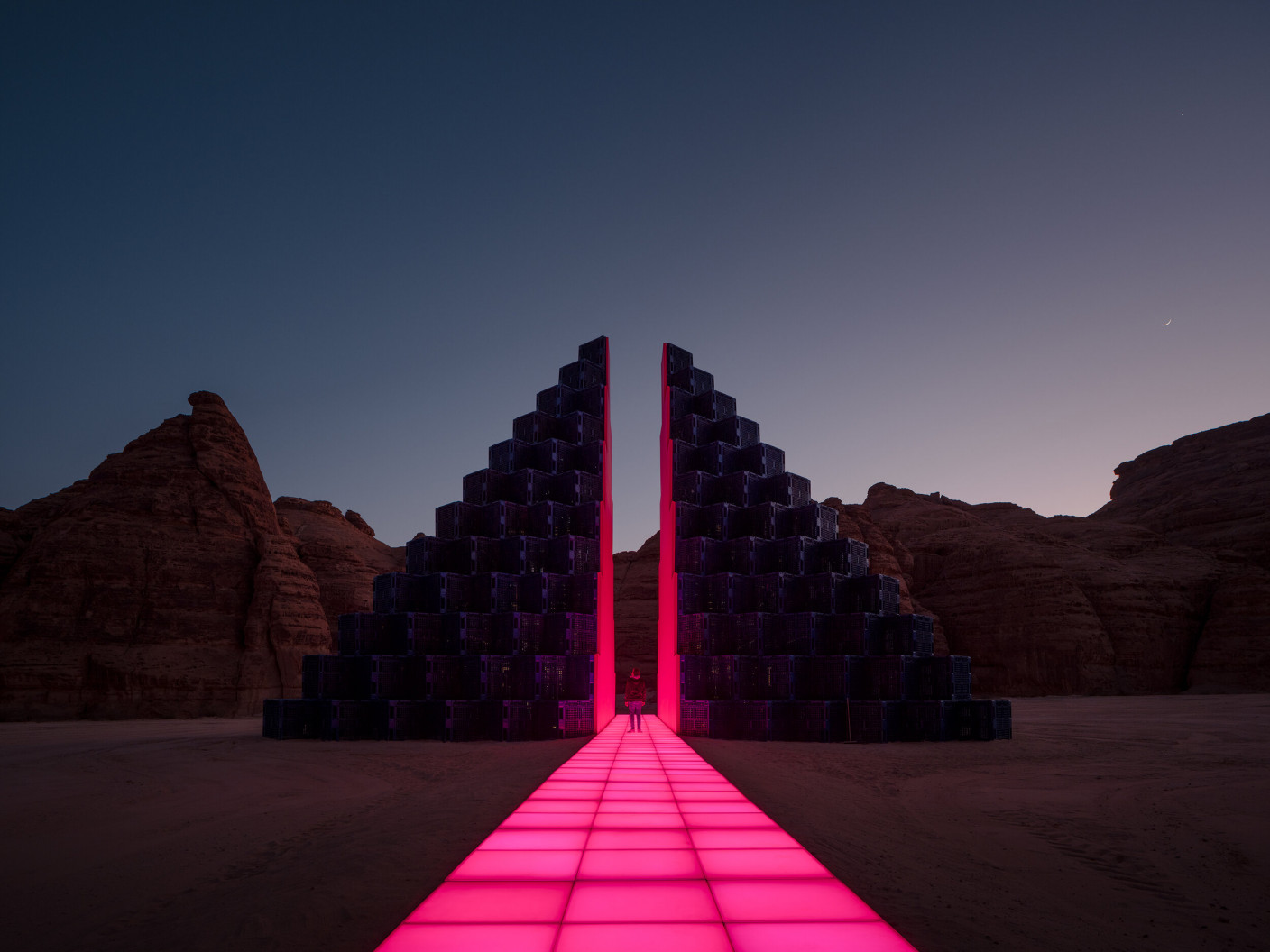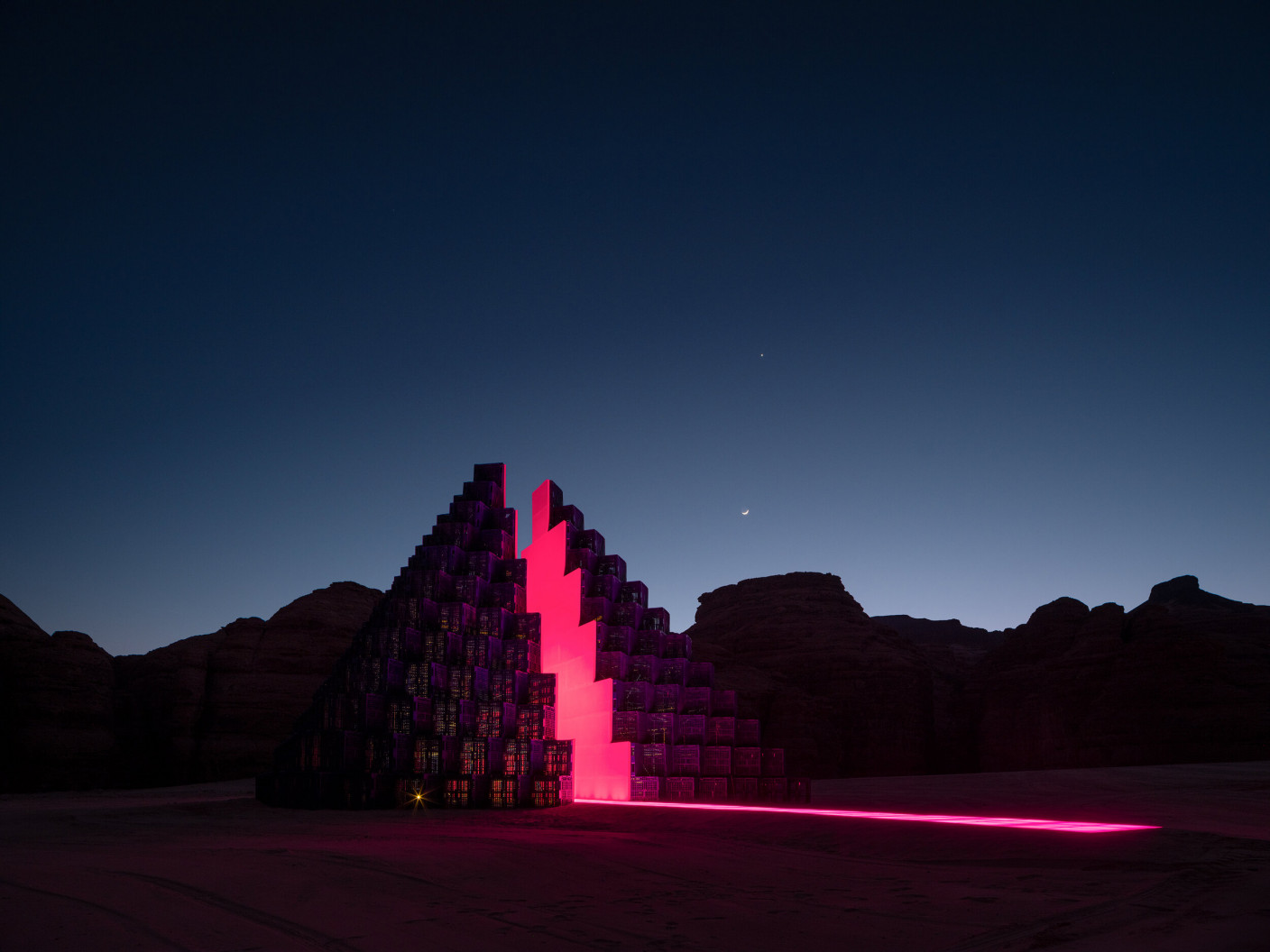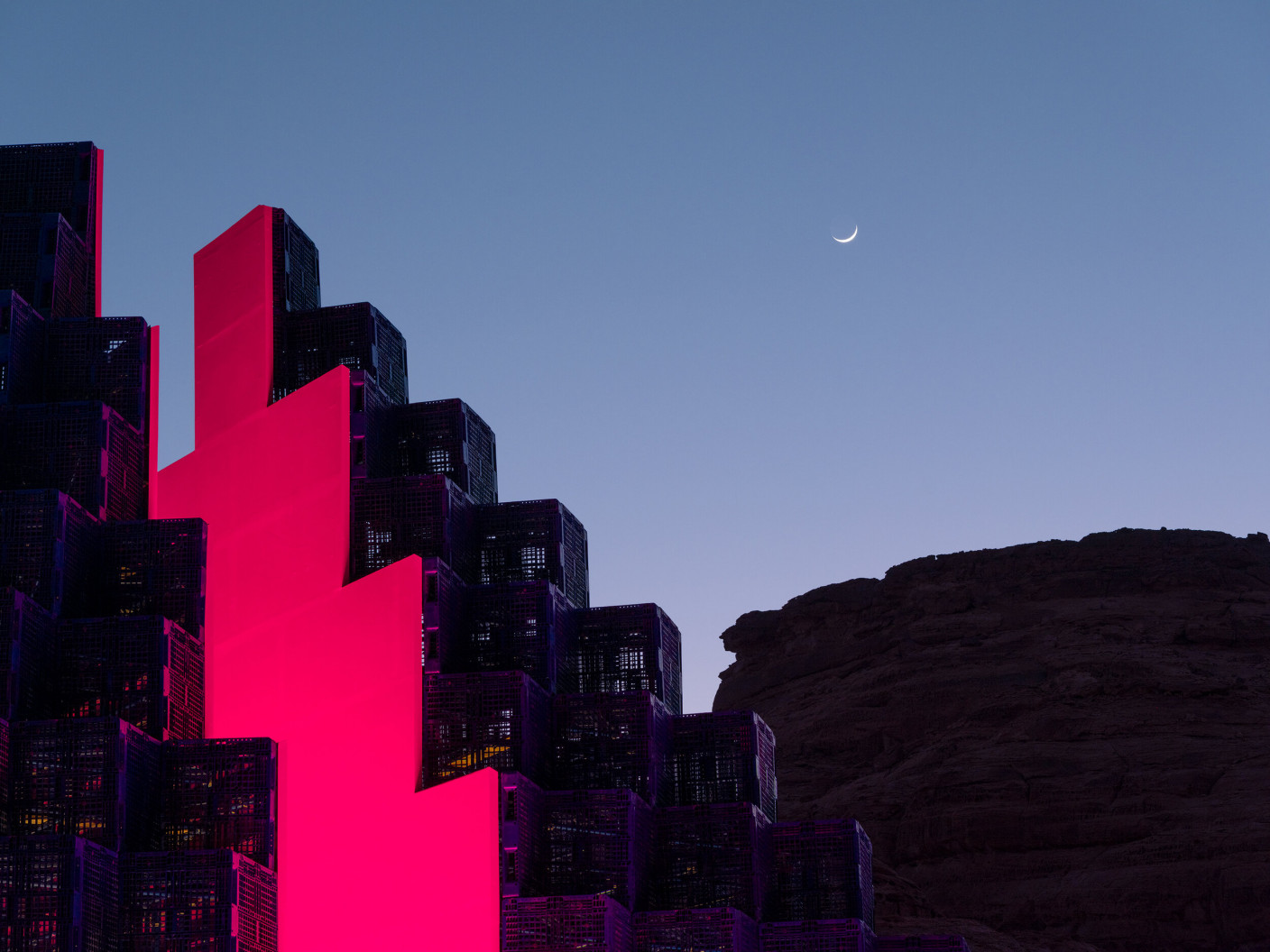Rashed AlShashai
A Concise Passage
In times gone by, travelers in trading caravans found refuge in AlUla, its natural rock formations providing shelter from the elements, a place for respite, as well as protection from the raiders and highwaymen of the desert. The horses and camels that made up these caravans quenched their thirst in its freshwater springs. This offer of shelter and safety in the harshest of environments helped turn AlUla into a cradle of successive civilizations. In this way, the confluence of geographic and social factors shaped the history of the place; in turn, the place had an abiding influence over the trade routes of the region.
Considering these compositional elements of trade histories, AlShashai playfully employs two distinctive symbols of ‘civilization’ and ‘commerce’ – one ancient and one modern. The pyramid has been a subject of fascination and study across various different fields for centuries, such as architecture, engineering, science, and spirituality. The artist uses the pyramid for its symbolic significance, identifying advanced civilizations due the genius of its design. It is a monument to ancient knowledge and wisdom. The plastic pallet is typically used for shipping goods all over the world and has become the foundation of the modern trade system. Here, it stands in for AlUla’s history as a major stop along the Incense Trade Route, a center where goods from various corners of the earth once exchanged hands.
In AlUla, AlShashai brings these two ideas together, constructing a pyramid from plastic pallets. The pyramid’s shape itself points to AlUla’s importance, not just as a cradle of civilization of old, but more importantly, to its reawakening; AlUla has embraced a new role as a center for the exchange of ideas rather than goods, and a generator of meaning and understanding rather than commerce. It has a renewed pride of place as a cultural hub for the region. The blue pallets and colored passage stand out in contrast to the calm tones of the landscape. It becomes a cheerful and emphatic contemporary monument; a beacon of knowledge, it is a metaphor for AlUla itself.
Split down the middle, the viewer is invited to enter the pyramid. Within, they are confronted with both nature and the man-made. This experience encourages thoughts around man’s legacy, the importance of what we leave behind and our place in the universe.
